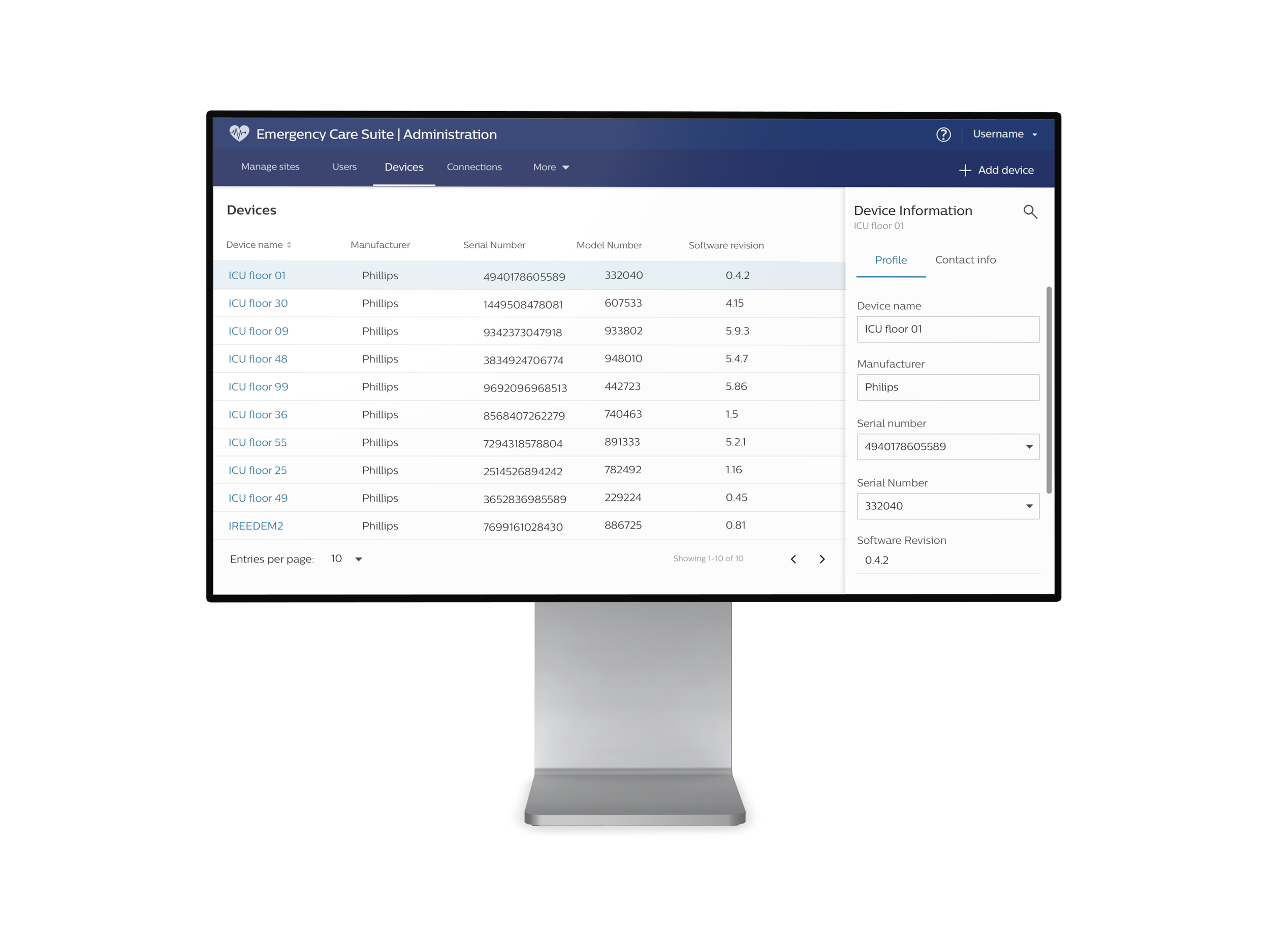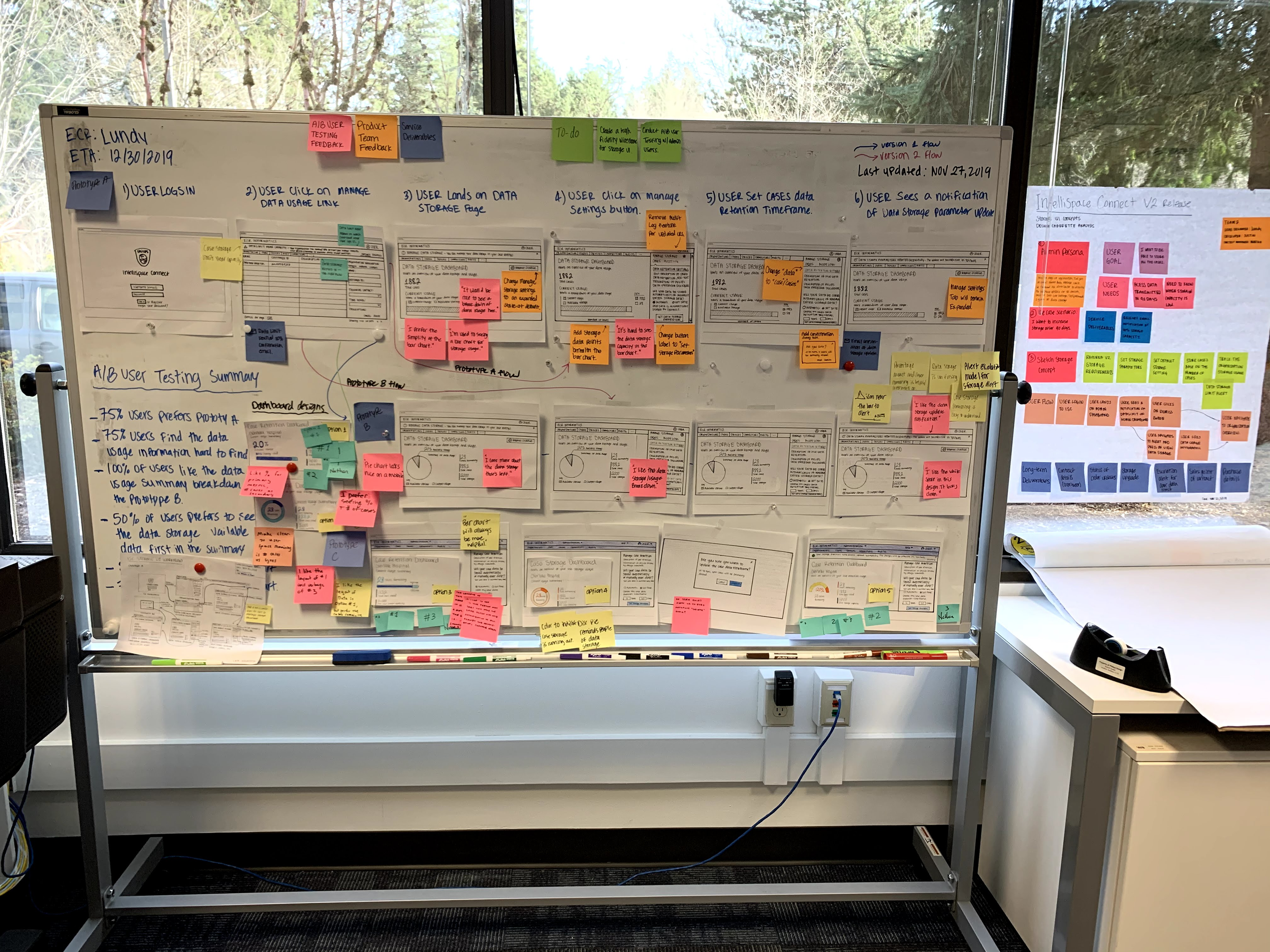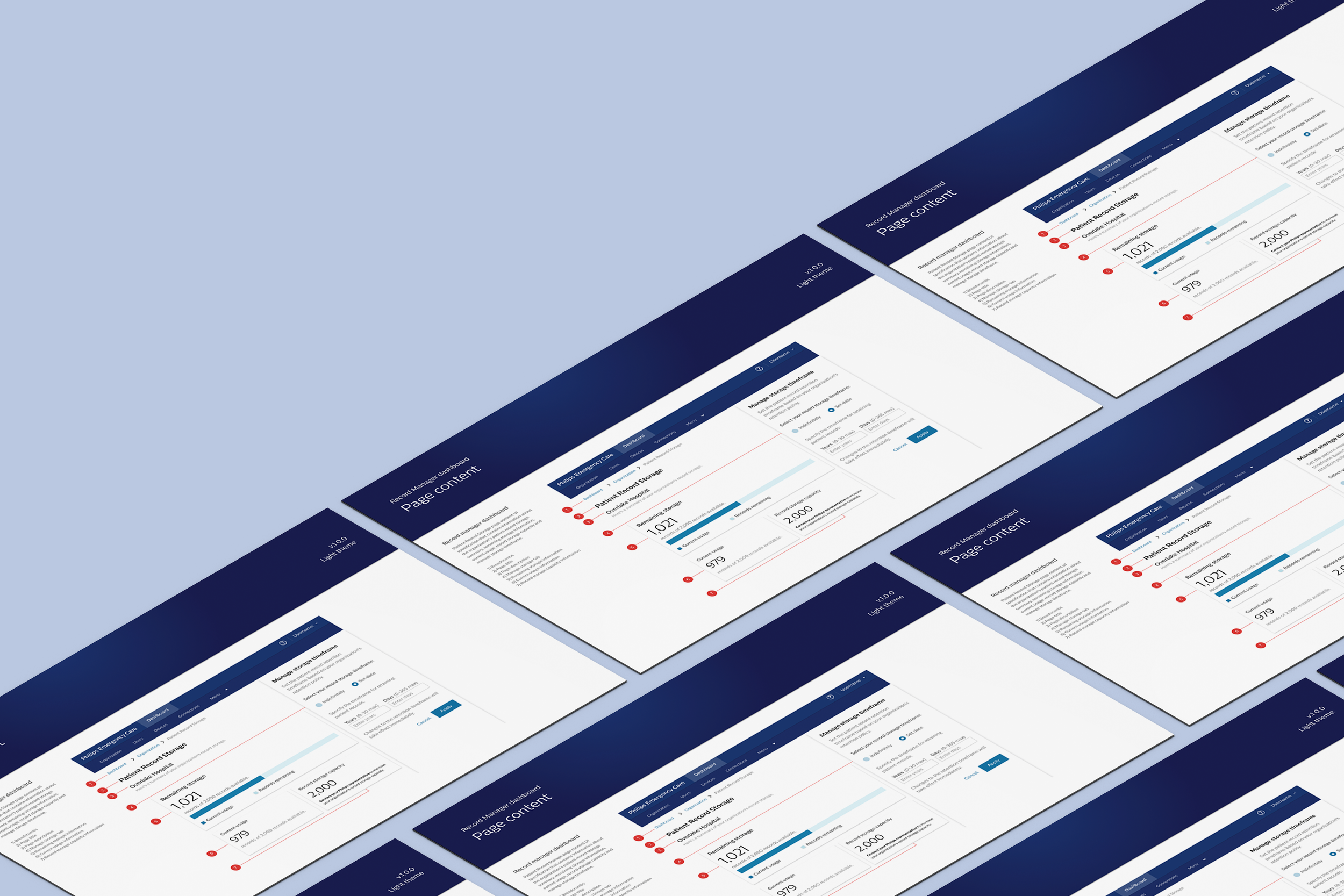Philips Healthcare
Increased task on time for users to manage patient storage cases by 46%
Current patient record management within healthcare organizations hampers the oganizations' ability to efficiently retain and store records. A lack of control and flexibility, along with the absence of a secure cloud-based solution, impedes quality initiatives and code reviews.
Role
UX Designer
Year
2020
Duration
3 months
Deliverables
User research
Design workshop
UI flows
Prototypes
Usability testing
Final UI specs
Team
Usability Engineer, UX designer and Product Owner
Software and tools
Sketch, InVision, and Principle
The Vision
Our design team goal is to create a solution that will streamline patient record management for healthcare organizations. By providing greater control, flexibility, and security, we aim to empower Administrators and Records Managers to effectively manage and store data from Philips' ECR monitor/defibrillators. Through these improvements, we strive to enhance the quality of care in clinical management, enabling healthcare professionals to deliver the highest standard of care to their patients.
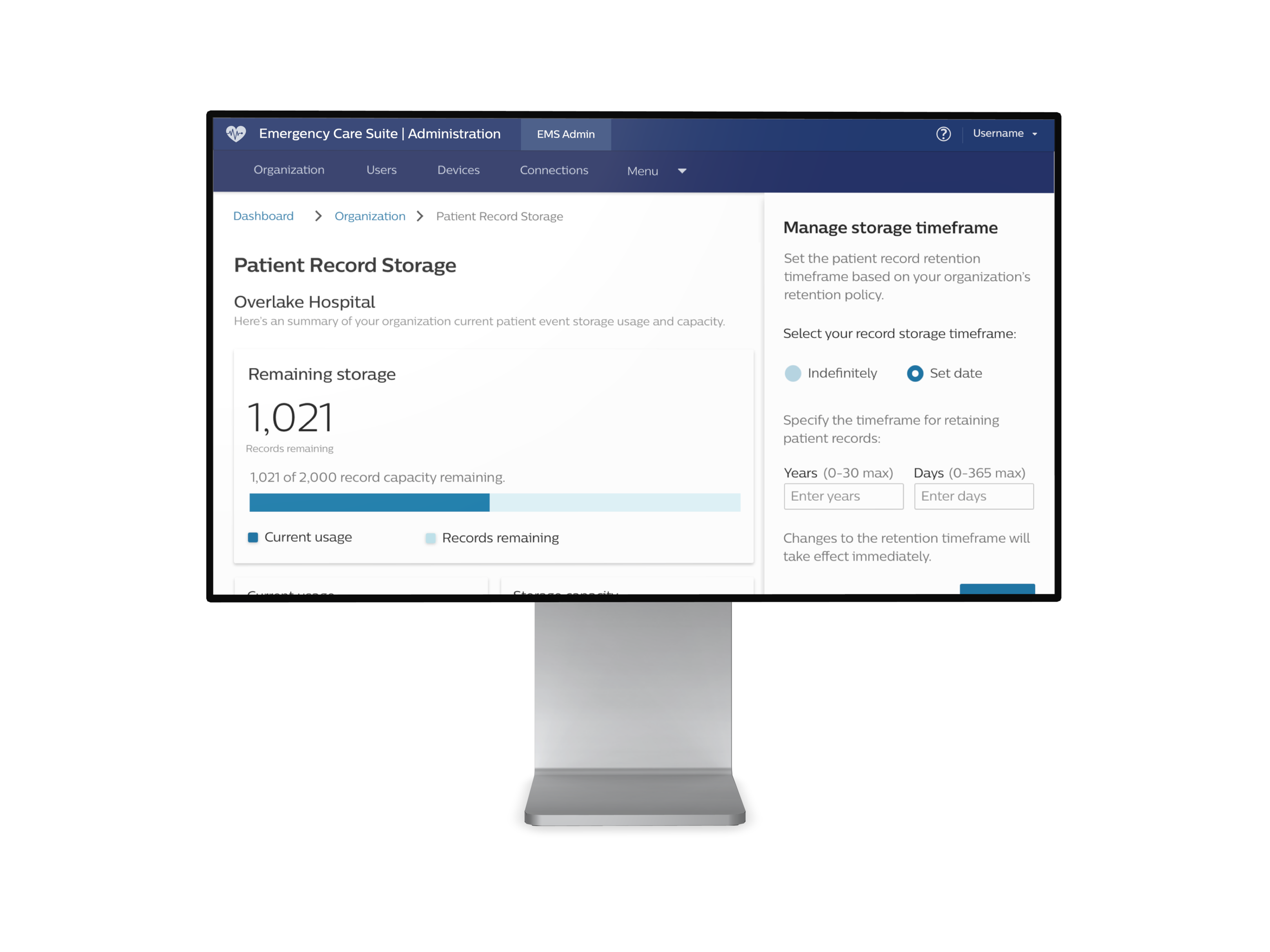
Allows Records Managers and Administrators to view and edit settings for patient record retention.

Enable Records Managers and Administrators to monitor the storage status of their organization's patient records, providing greater control and flexibility.
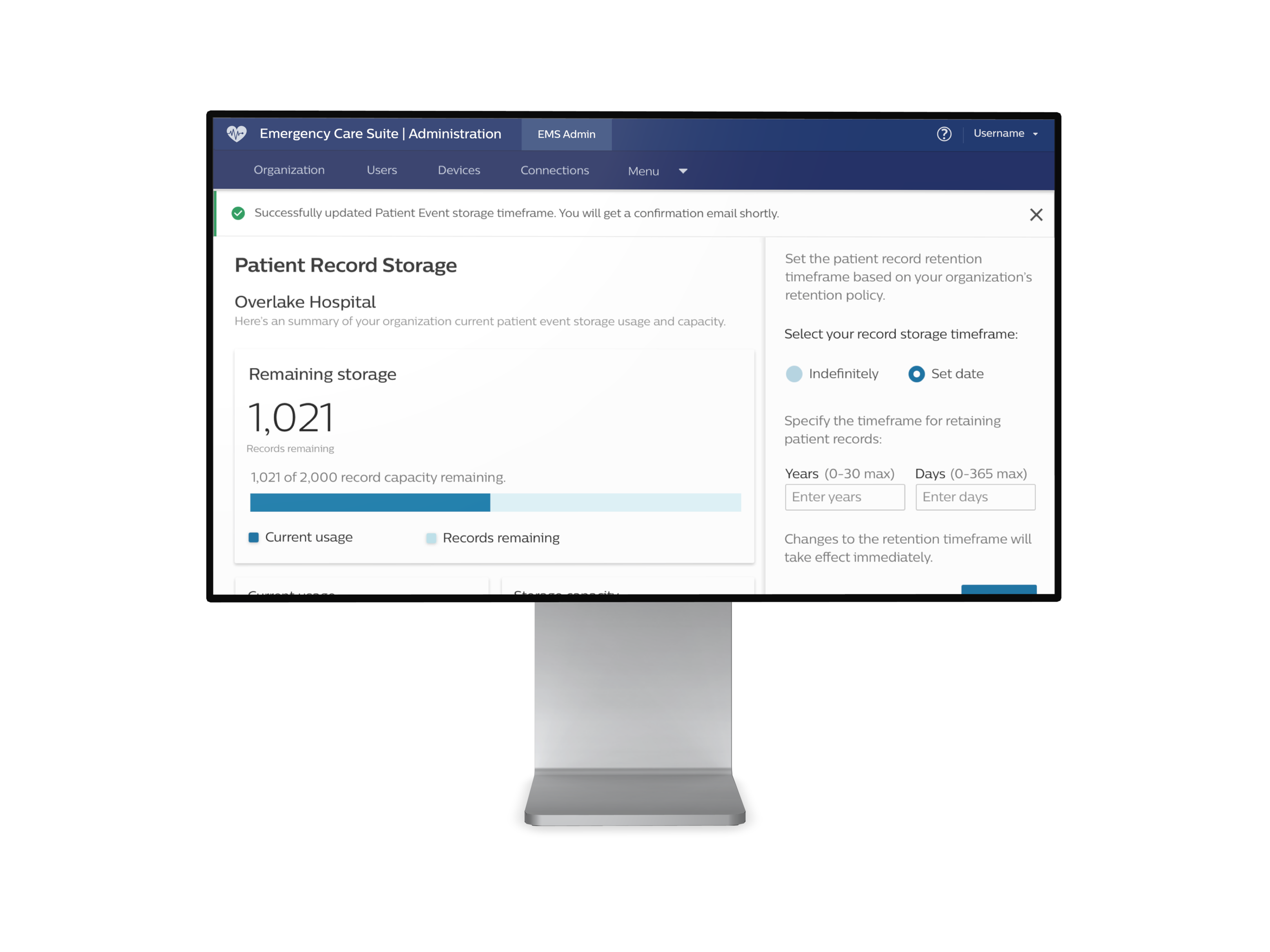
Product Features
The Patient Event Storage is designed to provide efficient and customizable management of patient records for healthcare organizations. The Patient Event Storage is a secure and private cloud-based solution that supports quality initiatives and code reviews, enabling healthcare organizations to focus on delivering the highest quality of care to their patients.
Role-based permission
The storage information appears differently depending on the type of license an organization has purchased, either a device license or an unlimited storage license. Records Managers and Administrators can view and edit settings for the retention of patient records and change the organization's patient record storage timeframe.
Streamlining Device Management
The new design of the Emergency Care Administrator application allows Administrators and Records Managers will be able to more effectively manage and store data collected from Philips' ECR monitor/defibrillators and improve the quality of care in clinical management.
User-Centered Design
We prioritize user feedback and validation throughout the design process by conducting user testing sessions. Through observing users interact with prototypes and capturing their insights, we refine the UI design and address any usability issues that arise, ensuring a seamless user experience.
Streamlined delivery process
Delivered the user interface and use specifications, style guide, user requirement specifications, and final design delivered via InVision and Philips QMS. Ensuring high-quality, user-centric designs that meet standards and user needs.
Impact
The new design improves the overall user experience for Administrators and Records Managers, increase the adoption and usage of the platform, and drive greater efficiencies and productivity for organizations.
Increased task success rate for updating patient record storage by 46%
-Formative usability testing
Reduced user error for deleting patient case storage by 38%
-Formative usability testing
Increase overall Patient Record Storage user satisfaction by 33%
-Formative usability testing





